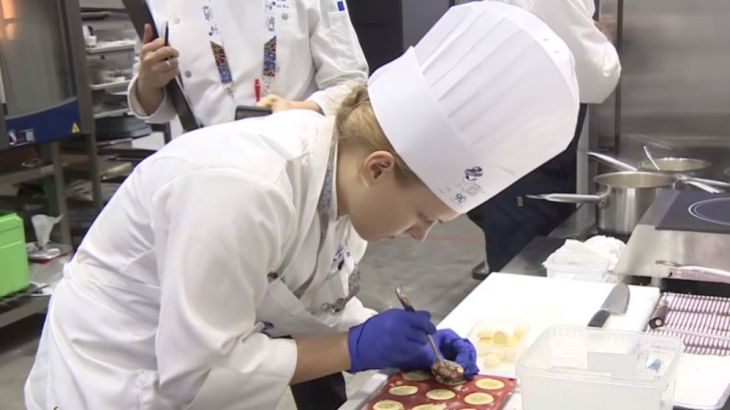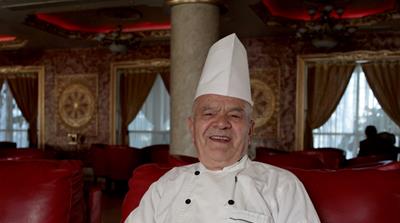World chefs gather to tackle issue of food waste
Chefs assemble in Kuala Lumpur to launch initiatives to cut food waste and reduce greenhouse gases by food going to landfill.

If you have ever thrown out food because it’s started to spoil, or left food on your plate uneaten because you were too full or didn’t like the taste of it, then you – like many others, myself included – have been guilty of food waste.
Roughly one-third of the food produced in the world is lost or wasted before it ends up on the table.
Keep reading
list of 4 itemsLost Futures
Photos: Greek valley that became a lake stirs drought debate
Botswana threatens to send 20,000 elephants to Germany
Food loss is food that’s spoilt before it reaches the retail stage. Food waste is food that’s fit for consumption but not consumed and discarded.
In a world where one out of nine people goes hungry, reducing the amount of food waste can be said to be a moral imperative.
And when you factor in the greenhouse gases emitted by food that ends up in the landfill, then it becomes an issue of sustainability as well.
The World Association of Chefs Societies, or Worldchefs, is tackling this issue head-on, through Feed the Planet, a Worldchefs initiative run in partnership with Electrolux and AIESEC.
At the Worldchefs Congress in Malaysia’s Kuala Lumpur, Chris Koetke, chairman of Feed the Planet, told an audience of chefs and culinary students, “If you can improve your bottomline through looking at food waste and improve things on the planet, why wouldn’t you?”
Feed the Planet has launched what’s called the Food Waste Challenge – a plan that encourages chefs worldwide to start measuring the amount wasted from their kitchens, and make a commitment to cut the mountain of discarded food.

“Those of us in white coats – we cook a lot of food; we use a lot of energy; we use a lot of water; we make a lot of waste,” said Koetke.
“So we have a responsibility to the larger society, to the planet, to make sure we’re doing well in each of those categories.”
ReTaste, a pop-up, not-for-profit restaurant in the Swedish capital of Stockholm takes the concept of reducing food waste one step further.
Twice a week, ReTaste serves up seven-course meals using mostly produce that would otherwise have been thrown out by supermarkets.
It’s a collaboration between two companies, Retired Hen, a food sustainability consultancy, and Pauls Kok, a restaurant.
In an on-site demonstration at the Worldchefs Congress, ReTaste chef Christopher Ekman whipped up some dishes using produce given by local supermarkets. His menu included pasta made from stale bread that had been ground down and then mixed with flour, eggs and salt.
Ruth Osborne, cofounder of Retired Hen, had a message for her audience: “You make incredible food out of premium products. And … if you use your imagination, take those skills, you can also make incredible meals out of less than premium products. And teach people that actually, they’re valuable and worth the enjoyment.”
My takeaway from Worldchefs Congress is this: we all have a part to play in reducing food waste – whether it’s finishing the food on your plate, or consuming that misshapen fruit.